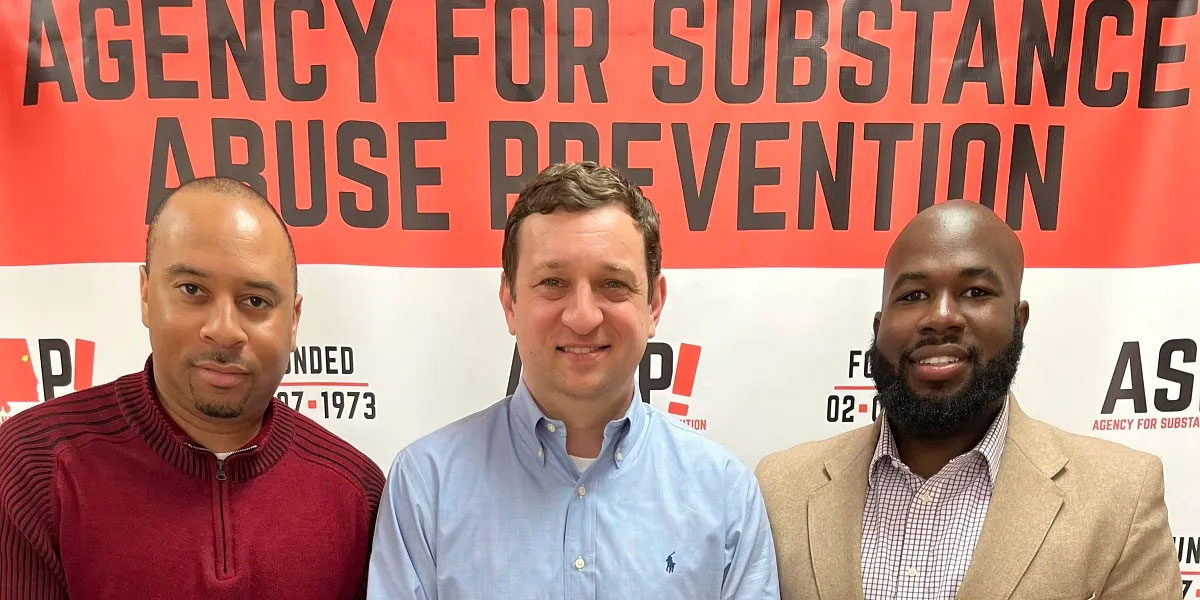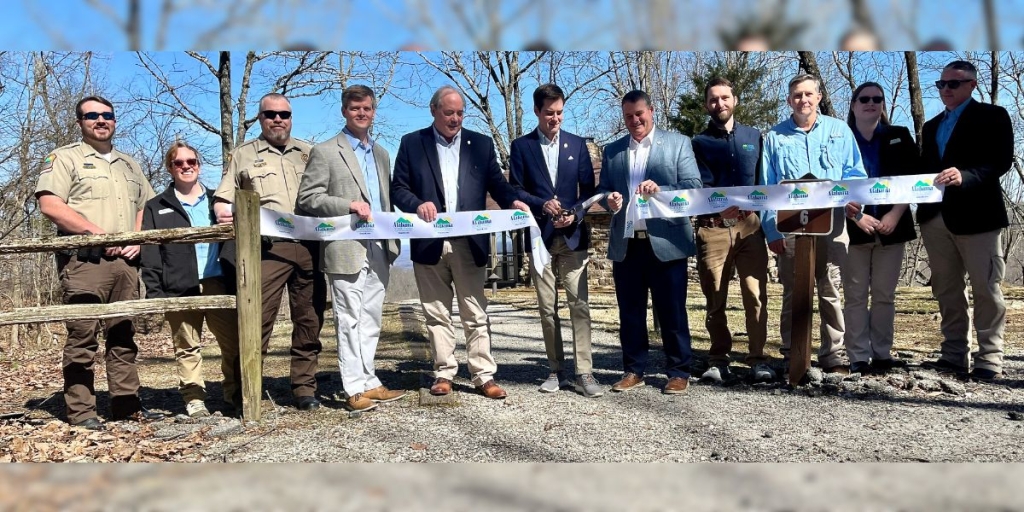The Agency for Substance Abuse Prevention (ASAP) based in Oxford recently received a $164,470 grant to address opioid and substance misuse by equipping pastors with the skills and resources to minister effectively to those with substance use disorder.
This program, Faith-Based Support Specialist (FBSS) training, is designed to bridge the gap between the faith community and the mental health field.
“The FBSS initiative aims to give church leaders of all faiths the opportunity to become a skilled professional in supporting those who seek help with substance use,” said Seyram Selase, director of ASAP. “Leaders who complete the program will have the knowledge and resources to point individuals in the direction of the most appropriate care for their individual situation. Receiving a certification backed by the Alabama Department of Mental Health, FBSS program participants will be educated on substance misuse, ethics, communication skills and many more relevant topics.”
The grant comes from the Foundation for Opioid Response Efforts (FORE), a 501(c)(3) national grant-making group focused on ending the nation’s opioid crisis. The foundation recently announced 11 new grants totaling $4.8 million to support innovative solutions to some of the opioid crisis’ most challenging problems.
“We are launching our Innovation Program to generate and support new approaches to some of the long-standing barriers to making real progress in addressing the opioid crisis – how to better tackle stigma, generate more timely and actionable data, and help for people transitioning from treatment to long-term recovery,” said FORE President Dr. Karen A. Scott. “These projects have great potential to give us exciting new tools and lessons that will help communities around the country respond to the crisis more effectively, inform future policy decisions and, ultimately, save lives.”
Dr. Andrea Barthwell is chair of FORE’s board of directors.
“FORE prioritizes projects that reach high-risk populations with patient-centered solutions and a commitment to health equity,” Barthwell said. “Our new Innovation Program continues to show our commitment to funding a diversity of projects that contribute solutions to the crisis at national, state and community levels.”
FORE’s Innovation Program is funding projects that combine approaches from diverse fields and engage multidisciplinary teams to encourage work on some of the crisis’ three most intractable challenges:
- Professional Education and Training to Address Stigma. While there is an increase in available professional education on addiction and recovery among healthcare, education, legal and criminal justice professionals, these subjects are not routinely taught. Projects in this focus area include innovative approaches to educating professionals and addressing stigma. ASAP’s FBSS program falls into this category.
- Timely and Actionable Data. New ways of generating real-time and actionable data are sorely needed for all levels of government to appropriately respond to and prevent overdoses, including through integrating new and untapped data sources across different sectors for a more in-depth understanding of the crisis.
- Supporting the Transition from Treatment to Recovery. The need is great to aid highly vulnerable patients transitioning from treatment to long-term recovery, including through novel uses of emerging technologies.
In addition to ASAP, other grantees include:
Professional Education and Training to Address Stigma
- Friends Research Institute Inc. (Baltimore, Maryland) – Doing Right at Birth: Reducing Stigma and Improving Recovery through Professional Education and Around Child Welfare Reporting. $596,921.
- Montefiore Medical Center (Bronx, New York) – Advancing Equity in Urine Drug Testing in Primary Care-Based Buprenorphine Treatment. $298,699.
- University of Massachusetts Dartmouth Foundation Inc. (North Dartmouth, Massachusetts) – Novel Organizational Simulation Training to Improve Graduate’s Mastery & Attitudes (NO STIGMA). $591,485.
- Weill Medical College of Cornell University (New York, New York) – Improving Physicians’ Self-Awareness and Attitudes Towards Patients with Substance Use Disorders via a Role-Playing Virtual Tool. $199,516.
Timely and Actionable Data
- Brown University (Providence, Rhode Island) – Understanding Drug Use Within a Rapidly Changing Supply: An Ethnographic and Toxicologic Investigation to Improve Overdose Prevention and Supply Surveillance Communication. $564,319.
- Medical College of Wisconsin (Milwaukee, Wisconsin) – Precision Epidemiology and the Opioid Crisis: Using Next-Generation Geospatial Analyses to Guide Community-Level Responses in Diverse and Segregated Metropolitan Regions. $600,000.
- Temple University (Philadelphia, Pennsylvania) – Stop Overdose Deaths: Monitoring Comprehensiveness of State Policy to Prevent Overdose Deaths. $600,000.
- Tufts University School of Medicine (Boston, Massachusetts) – Syndromic Surveillance of the Opioid Crisis in Lowell, Massachusetts: Data to Action and Evaluation. $475,521.
- University of North Carolina at Chapel Hill (Chapel Hill, North Carolina) – Randomized Trial and Analytic Chemistry Innovations to Optimize Drug Alerts. $599,488.
Supporting the Transition from Treatment to Recovery
- New York State Psychiatric Institute / Research Foundation for Mental Hygiene Inc. (New York, New York) – Health Technology Applications to Support the Integration of Care for Individuals with Substance Use Disorder. $94,595.ASAP was the only agency in Alabama to receive a grant.“ASAP saw the need to bridge the gap between the mental health field and the faith-based community,” Selase said. “FBSS is another way that we can increase the quality of life of the people of our communities by enhancing the ministerial toolbelts of faith-based leaders.”
For more information about the program or becoming a trainee, contact FBSS ambassador Byron Jackson at [email protected] or 256-525-8191.
(Courtesy of Alabama NewsCenter)












